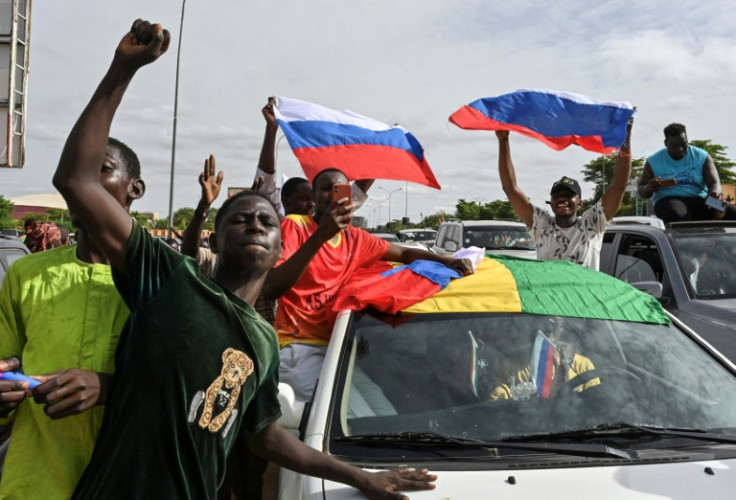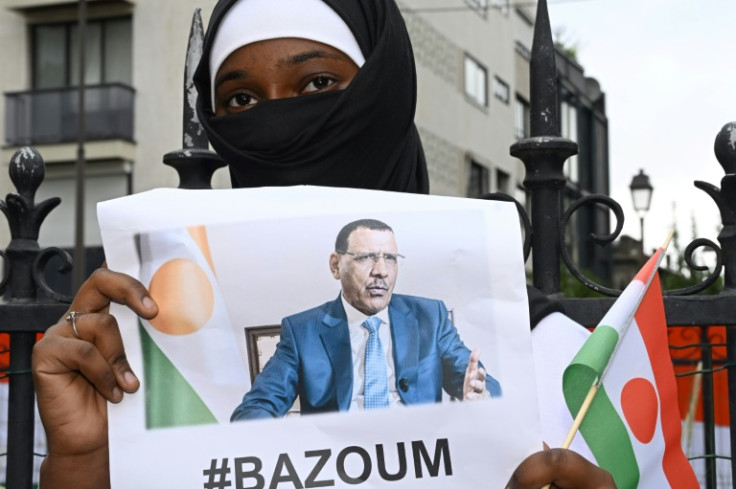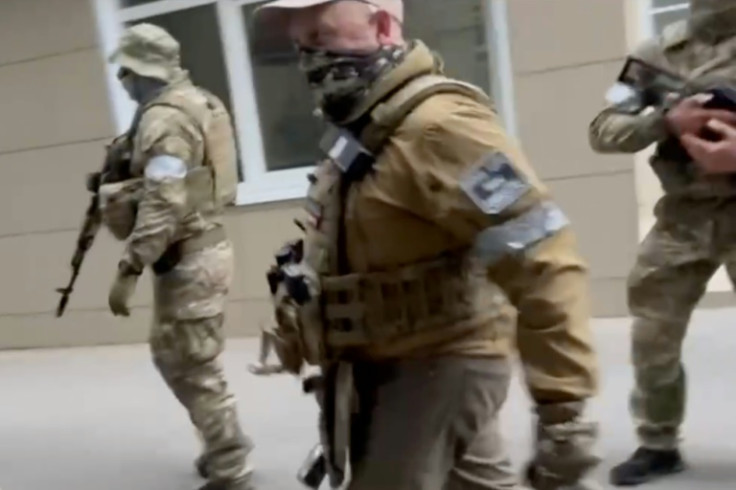US Seeks To Prevent New Russian Gain In Coup-hit Niger

The United States is seeking to prevent Russia from scoring a major new win with coup-hit Niger, wagering despite initial disappointment that long-standing military ties will keep the country in the Western orbit.
Niger has been the linchpin of US and French anti-jihadist operations in the Sahel, especially since the military takeover of neighboring Mali, which has shown the door to Western forces and welcomed Russia's ruthless Wagner mercenary force.
Victoria Nuland, the acting deputy secretary of state, on an unannounced visit to Niamey on Monday acknowledged little progress on reversing the July 26 coup but said that the military leaders "understand very well the risks to their sovereignty when Wagner is invited in."
She said that her main interlocutor, the newly named military chief of staff Brigadier General Moussa Salaou Barmou, has worked closely with US Special Forces and that she went into detail on "aspects of our cooperation that he has historically cared about a lot."
"So we are hopeful that that will sink in," she said.
Secretary of State Antony Blinken just months earlier paid a highest-ranking visit ever by a US official to Niger. He saluted gains under the elected president, Mohamed Bazoum, who was an honored guest both at democracy and Africa summits thrown by President Joe Biden.
US policymakers see no Russian hand in the coup but point to Russian influence operations since then, including French-language social media postings and rallies in support of the military takeover.
Playing on resentment of former ruler France, Wagner chief Yevgeny Prigozhin in a purported audio message hailed the coup as "nothing more than the struggle of the people of Niger against colonizers."
In an interview with the BBC, Blinken said that Bazoum's ouster was "not instigated by Russia or by Wagner," but warned that Wagner would "try to take advantage of it."
State Department spokesman Matthew Miller brushed aside suggestions of pro-Moscow sentiment after Russian flags appeared in demonstrations in Niger.
"I think it's very strange that if your country is taken over by a military junta and you want to show your support, the way you decide to do that is by running out and buying -- I guess at a store locally -- a Russian flag," Miller said.
Cameron Hudson, an Africa expert at the Center for Strategic and International Studies, said the coup showed the West had made incorrect judgments on Niger, where France and the United States together have stationed some 2,500 troops.
"I think Washington was operating under the impression that they were engaged with a very reliable Western partner," he said.
But Hudson said Niger was different from the Wagner strongholds of Mali and the Central African Republic, which both turned to the Russians after sensing an "existential threat."
He said that Niger's military, by contrast, appears happy to preserve relations with the United States -- which instead has suspended aid and demanded restoration of the constitutional order.
"But the one thing that Russia does offer is a chance to break isolation," Hudson said.
"If you do find yourself being pressured by regional and international organizations like the UN and the AU and ECOWAS, then Russia presents itself as a very convenient tool for helping to skirt or undermine that isolation."
Wagner has also backed warring sides in Sudan and Libya and allegedly has links with Burkina Faso. The mercenaries offer brutal military tactics -- UN investigators say more than 500 people were massacred last year in the Malian town of Moura -- and support to preserve regimes.
In return, Wagner wins coveted access to minerals and other natural resources and Russia gains diplomatically, with Mali one of the only countries to vote no at the United Nations on condemning the Ukraine invasion.
A month before the Niger coup, Prigozhin -- a gruff former inmate who grew wealthy on catering contracts to Vladimir Putin's Kremlin -- staged a dramatic revolt at home as he derided supposed military weakness in Ukraine.
But to the surprise of many outside observers, he has survived. Shortly before the Niger coup he vowed that Wagner would step up operations in Africa.
Prigozhin "has created such a complex network of companies as well as mercenaries that he's still of value to the Kremlin, despite his actions with the mutiny," said Heather Ashby, acting director of the Center for Russia and Europe at the US Institute of Peace.
"It's lucrative for Russia to continue along these lines. And so I don't anticipate that Wagner will go anywhere."


© Copyright AFP 2024. All rights reserved.







